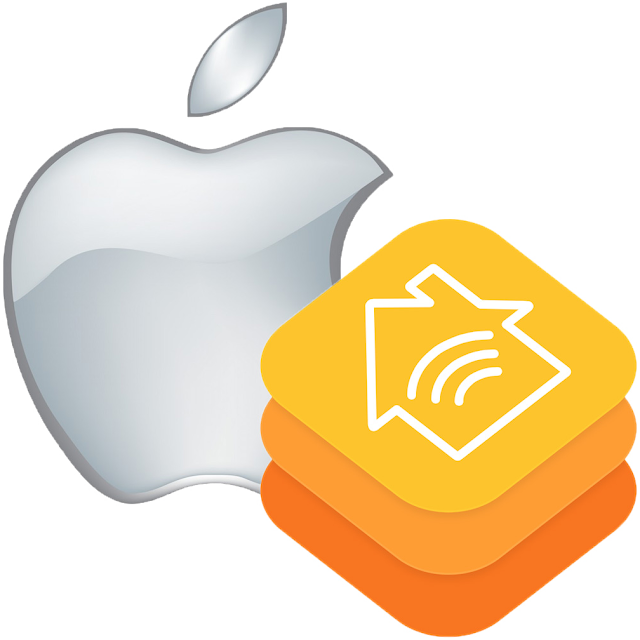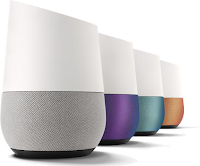| IoT, or Internet of Things, refers to the interconnection and integration of electro-mechanical devices (‘things’). It’s often thought of in the context of home automation (heating and air conditioning, lighting, door locks, entertainment, security, and even the promise of a digital butler), but the growing IoT can be used in numerous and yet unimagined ways. |
To be sure, development of what we think of as robots is proceeding apace. Bipedal ’bots can run, jump, gently lift an egg or crush a steel can. A few years ago, the US Army sponsored deployment of a creepy-looking headless, mechanical pack mule.
The devices I’m talking about may be called voice agents or digital assistants. Physically, they may more closely resembles a carafe, a thermos bottle, or a cigar box. Compared to R2D2, they have more in common with the cutsie robotic dogs and dolls seen in toy stores. They’re verbal assistants.
The Next Voice You Hear…
Artificial intelligence is still in the Model T stage, but it’s come a long way since the famous Eliza program that carried on a conversation of sorts. The new devices not merely entertain, they can help with small things. Not many things yet– they have limitations and a long way to go, but they can control your lights, thermostat, entertainment center, and home security. They can wake you up and put you to sleep.
Most can read you the news, make notes, look up recipes, set timers and answer simple questions. “How many teaspoons in a cup? How many grams is that? Halve that recipe. Repeat. What should I do for heartburn?”
Each plays games and tells goofy jokes. They can play music through your stereo or their own surprisingly decent speakers. Ask, and they can tell you about Thomas Jefferson, Jefferson Airplane, Jefferson Davis, or TV’s the Jeffersons. If you zero in on a musician, ask the gadget to play their music. Some of these devices remember the context of the previous question.
Keep an ear out for occasional jokes, little ‘Easter eggs’, so to speak. For example, ask Google Home who shot the sheriff, and she replies, “Bob Marley, but he didn’t shoot the deputy, if that makes a difference.”
The current players are big names you already know: Amazon, Apple, Google, and Microsoft. I’ve been living with one of these gadgets for the past couple of months. It’s not entirely ready for prime time, but that day will soon arrive. One is on my shopping list for friends.
Amazon Echo, Tap, and Dot, aka Alexa
Amazon Labs market the Echo, its little sister, the Tap, and the family baby, the Dot, all with personalities known as ‘Alexa’ but can also be called ‘Amazon’. Prices run $140 for the Echo, $90 for the Tap, and $40 for the Dot.
The company claims a skill set of 3000-some tasks, including reading audiobooks to you. Unlike the competition, it can order items from Amazon, (“Alexa, quick, order toilet paper, same-day service.”)
- You can’t miss a question posed by an Amazon customer: “I have 2 children, one named Alexa and the other named Amazon. Will this present any problems?” The 100+ answers are a riot.
Apple Home Kit, aka Siri
Siri can be found on the iPhone, the iPad, the latest Sierra MacOS 10.12.x, and now aboard the Apple Home Kit. Unlike its main competitors, Apple doesn’t offer a stand-alone device, which can be regarded as both an advantage and disadvantage. It’s nice to have one or more go-to spots without pulling out your phone. But it's convenient if you’re in your basement and want to adjust the thermostat without running upstairs: simply tell your iPhone or Android to switch on the furnace and adjust the temperature. Your kids arriving home can turn on the lights and unlock the door with their phone.
With an iPad, Siri controls devices like lighting, iTunes music, and Apple TV. Apple is rumored to have a ‘smart dock’ in the works, so they may make it possible to have both a central location and the ability to carry around the controller. Apple also has the largest ‘ecosystem’ and best integration, although that may change rapidly as Google and Microsoft gear up.
Google Home Assistant, aka Hey Google
Unlike the competition, the $130 Google Home doesn’t have a catchy wake-up name like Siri or Alexa, but it features a plucky female personality. Ask her to play trivia, and she becomes downright excited, bouncing off the walls of her tiny Genie bottle.
Google Home connects with Google Chromecast and can entertain you with Netflix, play internet radio and music, flash family photos on the screen, or show you a movie without your leaving your chair. One advantage is that home owners can place more than one device in the house, so a person can carry on conversations room-to-room.
Considering its massive search engine, Google would seem to have advantages over the competition, but it lags in areas, even though it has been buying up controls companies like Nest and investing in IoT research for home automation. One of the apparent issues is that Google was slow to reach out to third-party developers, so its non-home-grown actions number in the dozens compared to Apple and Amazon’s hundreds of tasks. Expect that to change sooner than later.
Microsoft Home Media Center Voice Assistant, aka Cortana
Cortana, Microsoft’s personal digital assistant, has received good reviews for understanding human language. However, with the fewest connectable devices, Microsoft is playing catch-up in the smart-home market.
The Redmond company has teamed up with Insteon, a player in the IoT scene. At present, the companies expect users to control their home automation with Windows computers, tablets, or Windows Phones, which seems to severely limit the market. However, Microsoft has brought Cortana and their search engine Bing to the iPhone and Android platforms, so they may intend future synergy there.
I’m surprised Microsoft hasn’t leveraged their popular X-Box into a home control system, but the company may be way ahead of me. Considering the source of the name Cortana, they should have a natural fit…
Apple and Amazon users seem happy with the Siri and Alexa names. Fans of other platforms appear less pleased with ‘Hey Google’, and downright hostile to the name Cortana. See, the name comes from the robotic AI in the first-person-shooter game, Halo. The game is fun, but bloody and violent, so many consider the awkward name inappropriate in a family setting… not that anyone expects their house to burst forth with an alien invasion.
The Others
Other companies are known for components or infrastructure in the home automation and IoT markets, including the venerable X-10, iHome, and a broad range of firms. Lack of cooperation among the major players may be offset by the interchangeability brought by the smaller team players.
A sampling of participants include mControl, HomeSeer, SmartThings, JDS Technologies, Vivint, and Iris. Honeywell, Nest, and others make thermostats and HVAC controls. Z-Wave and Zigbee are known for general controls and home IoT networking.
Concerns
All of us should be concerned these devices constantly listen. Supposedly they ignore anything until their name is called, “Hey Siri, hey Google, hey Alexa.” But the question arises about any listening post in your own home: How difficult would it be to imbed a listening device within your listening device? What if the police, or your opponent’s political party, or China where these things are made, or Mother Russia wants to listen in? But wait… a military contractor already does… listen in, that is, to your children.
Apple and Google have gone to great lengths to earn the trust of their customers. Thus far their reputations appear to be well deserved, but how difficult is it to hack any of these devices? Moreover, unless you tell them not to, all these companies upload dialogue to the cloud for voice analysis. The purposes don’t appear nefarious– yet. If you disable cloud processing, voice recognition will be less than optimal, but you can decide the risk.
Let me introduce to you two devices that listen to your children and upload the data to a military contractor.
 |
 |
Meet My Friend Cayla. She and her brother i-Que Robot are clever playthings from Los Angeles-based Genesis Toys. Cayla is au fait with Disney and Nickelodeon, so the little conspirator can urge your small one to tug your skirt and demand more and more product.
These dolls ask for considerable information, learning your child’s name and your name. Thanks to your IP address, they know where you live, but that doesn’t stop them from asking your child for their hometown and school. Aww, it’s so cute to see your child interacting with a
Because that’s exactly what it is. The dolls upload conversations of anybody in the room to a Boston defense contractor that sells “voice biometric solutions” to military, intelligence, and law enforcement agencies. Your child’s talk… and yours.
Additionally, its internet connection is insecure and can be easily subverted and hacked. Bad guys could sit outside your home and listen to your conversations.
If you already own one of these dolls, consider what to do. If you hang on to it, take a couple of safety steps. First, the doll communicates through the internet via Bluetooth, probably through your phone or laptop. Disable that connection when it’s not in use. And shut off the damn doll.
Sorry to go all bah-humbug on you. But really, I want you to have a happy Chanukah and a wonderful Christmas in the privacy of your own home.
Is there already a voice assistant in your home or perhaps your Christmas stocking? What are your experiences? What are your thoughts?
“Hey Alexa, Siri, Google… read my award-winning story back to me.”







